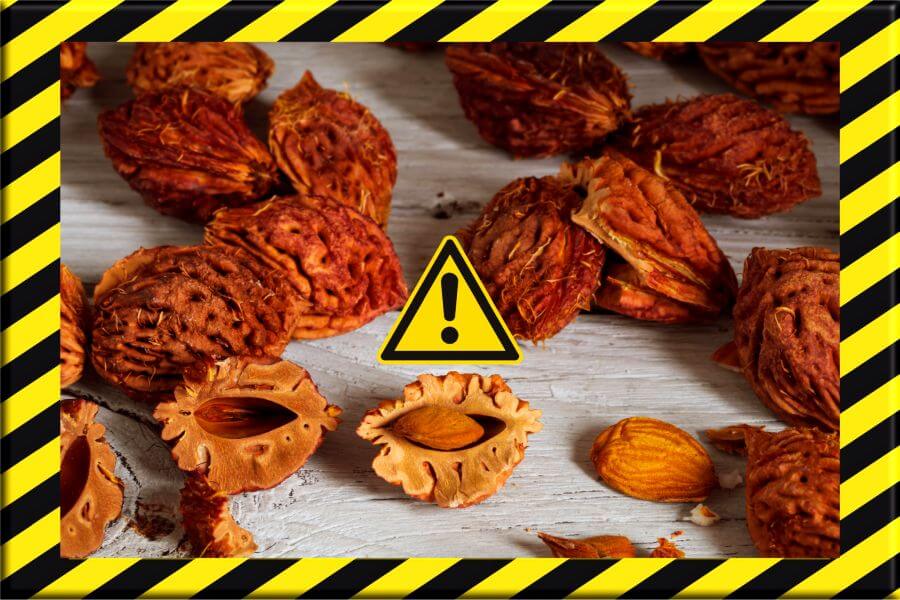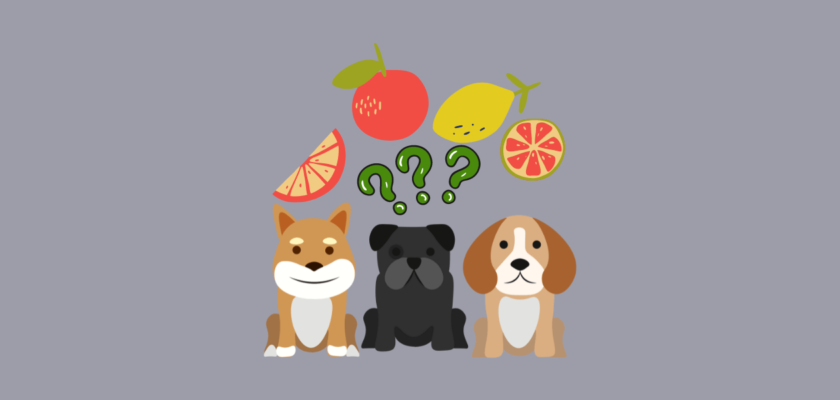One day we received an emergency call at my clinic from a lady. Her beloved Golden Retriever got into some grapes and started vomiting about 6 hours later. She brought Candy – who now seemed lethargic and weak – in right away, and we quickly began to treat her with IV fluids. She recovered quickly, but it was a scary situation.
If you’re unsure about whether your dog can eat a certain type of fruit, always consult your vet for their recommendation. The best way to make sure that your dog eats fruits safely is to educate yourself on safe dog treats. What fruits can dogs eat? Here’s what you should note down:
Key Takeaways
- Dogs can reap the benefits of eating certain fruits, as long as you give them in moderation.
- Apples, bananas, watermelons, and blueberries are classic choices for healthy dog snacks.
- Strawberries, mangoes, cranberries, papayas, pineapples and cherries are all good sources of vitamins A, C and E, beta-carotene, antioxidants and minerals like manganese, potassium and copper.
- Some fruits should be avoided completely because they can cause kidney failure or other problems in dogs. These include grapes, avocados and anything containing pits.
Apple
Apples are not just a tasty treat for dogs, but can also be beneficial to their health. They contain high levels of fiber and vitamin C that helps protect cells from damage, maintain the health of teeth and bones, and support the immune system. However, make sure you remove the seeds because they can poison your dog if ingested. You should only give apples as a treat and in moderation because of their high sugar content.
Banana
What fruits can dogs eat? Bananas are an excellent source of potassium, manganese, vitamin B12 and biotin. On top of that, bananas contain vitamin C that improves the immune system and a good amount of fiber that helps with digestive health. The only part of the banana that isn’t safe for dogs is banana peel, as it is hard to digest.
Watermelon
Watermelon contains lycopene, vitamin A and C. It’s rich in antioxidants that fight free radicals that are responsible for causing inflammation, heart disease and diabetes. Make sure you do not give your pup the seeds because they can cause intestinal blockage if ingested. Also remove the rind because it’s almost pure fiber and therefore can cause gastrointestinal distress.
Blueberry
Blueberries are very rich in antioxidants that fight inflammation, improve the immune system and promote good heart health. They also boost brain function, memory and vision. Again, ensure that you give them to your dog only as a treat because berries are high in sugar. Also limit the portion size so that it does not upset your dog’s stomach.
Strawberry
Strawberries are also a good source of vitamin C, antioxidants and fiber. They can help fight inflammation, improve the immune system and keep your dog’s teeth clean. However, do not give too many strawberries to your dogs because they contain high levels of sugar that can cause rapid weight gain or gastrointestinal distress.
Mango

What fruits can dogs eat if you prefer exotic ones? Mango is a good source of vitamin A and C. It also contains beta-carotene that is beneficial for the eyesight. Your dog can eat this fruit, provided that you make sure to remove the pit because it can choke them or cause intestinal blockage if ingested. You should only give small amounts at a time.
Cranberry
Cranberry is a good source of antioxidants that fight inflammation and promote healthy skin, teeth and gums. Additionally, cranberry helps to prevent urinary tract stones in dogs. Limit yourself to giving your dog only small amounts, and you’re good!
Papaya
Papaya contains vitamins A and C that help improve the immune system, vision and skin health. It also has anti-inflammatory properties that can treat arthritis in dogs. However, make sure you only give your pup ripe papayas because unripe ones may cause gastric irritation or vomiting. Also remove the seeds before feeding them since they contain an enzyme called papain, which can cause gastric irritation as well.
Pineapple
Pineapple is a good source of vitamin C, B-complex vitamins and minerals like manganese, potassium and copper. Pineapple contains beta-carotene that is beneficial for the eyesight and vitamin C that helps boost the immune system. If your dog is healthy and has no digestive problems, a small amount of pineapple is unlikely to cause any harm. It’s a tasty snack for dogs, and it’s high in fiber!
Cherry
Cherries are high in vitamin C, A and E. They also contain antioxidants that help fight cancer cells in the body. Cherries contain beta-carotene that is beneficial for the eyesight and vitamin C that helps boost the immune system. Remove the pits and stems before feeding cherries to your dog since they contain cyanide, which can be dangerous if ingested.
Fruits That You Should Never Feed Your Dog
We’ve answered the question “What fruits can dogs eat?”. There are also a number of fruits that are bad for dogs. Grapes, for example, can cause liver and kidney damage in dogs. Other fruits that can be harmful to dogs include avocados and whole plums, cherries, peaches and apricots – the pits are dangerous when ingested. More details below.
Grapes and Raisins
Grapes and raisins are toxic to dogs, and they can cause renal failure. Dogs that eat grapes or raisins can start to vomit, have diarrhea, and become lethargic. In some cases, eating them can be fatal for dogs.
Avocado
Avocados are toxic to dogs because they contain a compound called persin. This toxin can cause dogs to vomit, have diarrhea, and experience breathing difficulties. Additionally, avocados can be fatal to dogs if they consume a large amount of the fruit. For these reasons, it’s important to keep avocados away from dogs.
Anything Containing Pits
Cherry, plum, peach and apricot pits are harmful to dogs because they contain cyanide, which is poisonous. They also split into sharp pieces when chewed, which can cause internal injuries. If a dog eats a fruit pit, they could experience vomiting, diarrhea, and even death. It’s important to keep fruit pits away from dogs, as they can be very dangerous.

What Fruits Can Dogs Eat? Ask a Vet
As you can see, dogs can eat a wide variety of fruits. Always check with your veterinarian before adding any of these fruit to your dog’s diet, and make sure they aren’t allergic to them. And remember to give them the safe fruits in moderation because they are still high in sugar and can cause stomach upset, including vomiting and diarrhea, if given in large quantities.
Similar Posts:
- What Fruits Can Cats Eat? These Human Foods Are Safe for Cats
- Can Dogs Eat Cherries? Are Dried Cherries Safe for Dogs?
- Can Cats Eat Fruit? What to Remember About Human Food
- Can Dogs Eat Nectarines and the Dangers of Pits
- Can Cats Eat Mango? The Kitty’s Digest in a Nutshell
- Can Cats Eat Strawberries? Why Do Cats Like Strawberries?
- Can Dogs Eat Pineapples? Your Pineapple Guide for Dogs
- Can Dogs Eat Pears? A Comprehensive Guide

